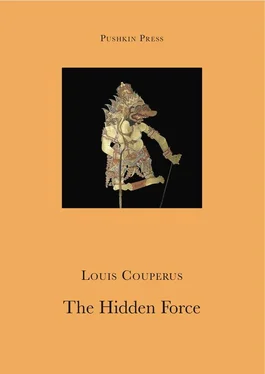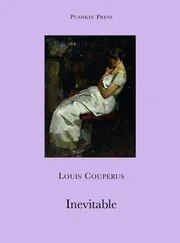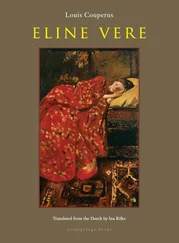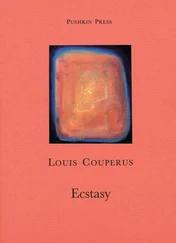Louis Couperus - The Hidden Force
Здесь есть возможность читать онлайн «Louis Couperus - The Hidden Force» весь текст электронной книги совершенно бесплатно (целиком полную версию без сокращений). В некоторых случаях можно слушать аудио, скачать через торрент в формате fb2 и присутствует краткое содержание. Год выпуска: 2012, ISBN: 2012, Издательство: Pushkin Press, Жанр: Классическая проза, на английском языке. Описание произведения, (предисловие) а так же отзывы посетителей доступны на портале библиотеки ЛибКат.
- Название:The Hidden Force
- Автор:
- Издательство:Pushkin Press
- Жанр:
- Год:2012
- ISBN:9781908968227
- Рейтинг книги:4 / 5. Голосов: 1
-
Избранное:Добавить в избранное
- Отзывы:
-
Ваша оценка:
- 80
- 1
- 2
- 3
- 4
- 5
The Hidden Force: краткое содержание, описание и аннотация
Предлагаем к чтению аннотацию, описание, краткое содержание или предисловие (зависит от того, что написал сам автор книги «The Hidden Force»). Если вы не нашли необходимую информацию о книге — напишите в комментариях, мы постараемся отыскать её.
The Hidden Force — читать онлайн бесплатно полную книгу (весь текст) целиком
Ниже представлен текст книги, разбитый по страницам. Система сохранения места последней прочитанной страницы, позволяет с удобством читать онлайн бесплатно книгу «The Hidden Force», без необходимости каждый раз заново искать на чём Вы остановились. Поставьте закладку, и сможете в любой момент перейти на страницу, на которой закончили чтение.
Интервал:
Закладка:
“I’ve heard,” said Mrs Doorn de Bruijn — placid, melancholy, and quietly venomous — that this time a member of the Council of the Indies, a head of department in the colonial service and three young men in trade amused Mrs Van Oudijck in Batavia.”
“And I can assure you all,” ventured the doctor, “that if Mrs Van Oudijck did not go regularly to Batavia, she would forgo a very salutary cure, even though she is taking it on her own initiative and not… on my orders.”
“Don’t let’s speak ill of her!” Eva interrupted him almost pleadingly. “Mrs Van Oudijck is beautiful — with a calm Junoesque type of beauty, with the eyes of Venus — and I’m prepared to forgive beautiful people around me a lot. And you, Doctor…” she wagged her finger at him. “Don’t betray professional secrets. You know that doctors in the Indies are often too free with their patients’ secrets. If ever I’m ill, I’ll never have anything worse than a headache. You won’t forget that, will you, Doctor?”
“The Commissioner looked preoccupied,” said Doorn de Bruijn.
“Do you think he knows… about his wife?” asked Ida gloomily, with her large eyes full of black velvet tragedy.
“The Commissioner is often like that,” said Frans van Helderen. “He has his moods. At times he’s good company, cheerful, jovial, as on the recent inspection tour. At others, he has his dark days, he works and works and works, and roars that the only person who does any work is himself.”
“My poor, unappreciated Onno!” sighed Eva.
“I think he’s working too hard,” Van Helderen went on. “Labuwangi has been a huge burden. And the Commissioner takes too much to heart, both at home and outside. His relationship with his son and with the Prince.”
“I’d get rid of the Prince,” said the doctor.
“But, Doctor,” said Van Helderen, “you know enough about conditions in Java to realize that it’s not as easy as that. The Prince’s family is too identified with Labuwangi and too highly regarded by the people…”
“Yes, I know Dutch policy… The British in India are more high-handed and peremptory with their Indian princes. The Dutch defer to them too much.”
“It remains to be seen which policy is best in the long run,” said Van Helderen drily, who could not stand a foreigner criticizing anything in a Dutch colony. “Fortunately we don’t have conditions of squalor and famine like they have in British India.”
“I saw the Commissioner talking very seriously to the Prince,” said Doorn de Bruijn.
“The Commissioner is too sensitive,” said Van Helderen. “He’s definitely troubled by the slow decline of an ancient Javanese family, a family that is doomed to fall but one that he would like to preserve. In that respect, however cool and practical he may be, the Commissioner is behaving rather poetically, although he wouldn’t admit it. But he remembers the glorious past of the Adiningrats, he still remembers the last glorious figure, the noble old pangéran , and he compares him with his sons, one a fanatic, the other a gambler…”
“I think our Prince — not the Prince of Ngajiwa: he’s just a coolie — is divine!” said Eva. “I think he looks just like a living shadow puppet. But I’m afraid of his eyes. What terrible eyes! Sometimes they’re sleepy, but sometimes they’re the eyes of a madman… But he’s so refined, so distinguished. And the radèn-ayu is an exquisite little doll too: yes, yes… She says nothing, but she looks decorative. I’m always glad when they do me the honour of attending my parties, and when they’re not there, there’s something missing. And what about the old radèn-ayu pangéran , grey, dignified, a queen…
“An inveterate gambler,” said Eldersma.
“They’re gambling everything away,” said Van Helderen. “She and the Prince of Ngajiwa. They’re no longer rich. The old pangéran had wonderful regalia for state occasions, magnificent lances, a jewelled betel-nut box, spittoons — useful items, those! — priceless. The old radèn-ayu pangéran has gambled it all away. I think that all she has left is her pension, 240 guilders, I believe. And how our Prince manages to keep all his cousins in his official residence according to Javanese custom, is a mystery to me.
“What custom?” asked the doctor.
“Every prince gathers his family round him like parasites, clothes them, feeds them, gives them pocket money… and the population finds that dignified and chic.”
“Sad… greatness fallen into decay!” said Ida gloomily.
A boy came and announced that dinner was ready and they adjourned to the rear veranda, and took their places at table.
“And what have you got up your sleeve, dear lady?” asked the senior engineer. “What are the plans? Labuwangi has been very quiet recently.”
“It’s awful really,” said Eva. “If I didn’t have my friends, it would be awful. If I weren’t making plans the whole time, having ideas, it would be awful, living like this in Labuwangi. My husband doesn’t feel the same, he works, just as all of you gentlemen work; what else can one do in the Indies but work, despite the heat. But for us women! Really, what a life, if one does not discover happiness in oneself, in one’s home, in one’s circle of friends — if one is fortunate enough to have such a circle. Outside of that there’s nothing. Not a painting, not a sculpture to be seen, no music to be heard. Don’t be angry, Van Helderen. Your cello-playing is delightful, but no one in the Indies keeps up with the latest developments. The Italian opera is performing… Il Trovatore . The amateur companies — not bad at all in Batavia — do… Il Trovatore . And you, Van Helderen… don’t deny it. I saw how entranced you were when the Italian opera from Surabaya brought Il Trovatore to the club here. You were in seventh heaven.”
“There were some lovely voices…”
“But twenty years ago — so I’m told — people were just as enchanted by… Il Trovatore . It’s terrible! Sometimes, all of a sudden, it weighs me down. Sometimes I have the sudden feeling that I have not grown accustomed to the Indies, and that I never will, and I feel homesick for Europe, for life!
“But, Eva…” protested Eldersma in alarm, frightened that she would actually go back and leave him alone in his utterly joyless working environment in Labuwangi. “You know you sometimes appreciate the Indies, your home; the good, full life…”
“Good materially…”
“And you appreciate your work. I mean, all the things you can do here.”
“What? Organizing parties? Organizing fêtes?”
“You’re the real commissioner’s wife, Eva,” enthused Ida.
“Which fortunately brings us back to Mrs Van Oudijck,” teased Mrs Doorn de Bruijn.
“And to professional secrecy,” said Doctor Rantzow.
“No,” sighed Eva. “We need something new. Balls, parties, picnics, trips to the mountains… We’ve exhausted them all. I can’t think of anything else. The pressure of the Indies is weighing on me again. I’m in one of my melancholy moods. I suddenly have a horror of my servants’ brown faces around me. Sometimes the Indies frighten me. Don’t any of you feel that? A vague fear, a mysterious feeling in the air, something menacing… I don’t know. The evenings are so full of mystery and there is something mysterious in the character of the native, who is so far removed from us, is so different from us…”
“Artistic feelings,” teased Van Helderen. No, I don’t feel that. The Indies are my country.”
“Typical!” said Eva, teasing him in turn. “Why are you as you are? So strangely European; I can’t call it Dutch.”
Читать дальшеИнтервал:
Закладка:
Похожие книги на «The Hidden Force»
Представляем Вашему вниманию похожие книги на «The Hidden Force» списком для выбора. Мы отобрали схожую по названию и смыслу литературу в надежде предоставить читателям больше вариантов отыскать новые, интересные, ещё непрочитанные произведения.
Обсуждение, отзывы о книге «The Hidden Force» и просто собственные мнения читателей. Оставьте ваши комментарии, напишите, что Вы думаете о произведении, его смысле или главных героях. Укажите что конкретно понравилось, а что нет, и почему Вы так считаете.












